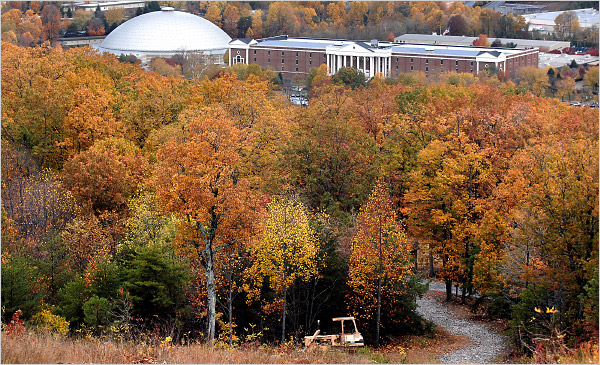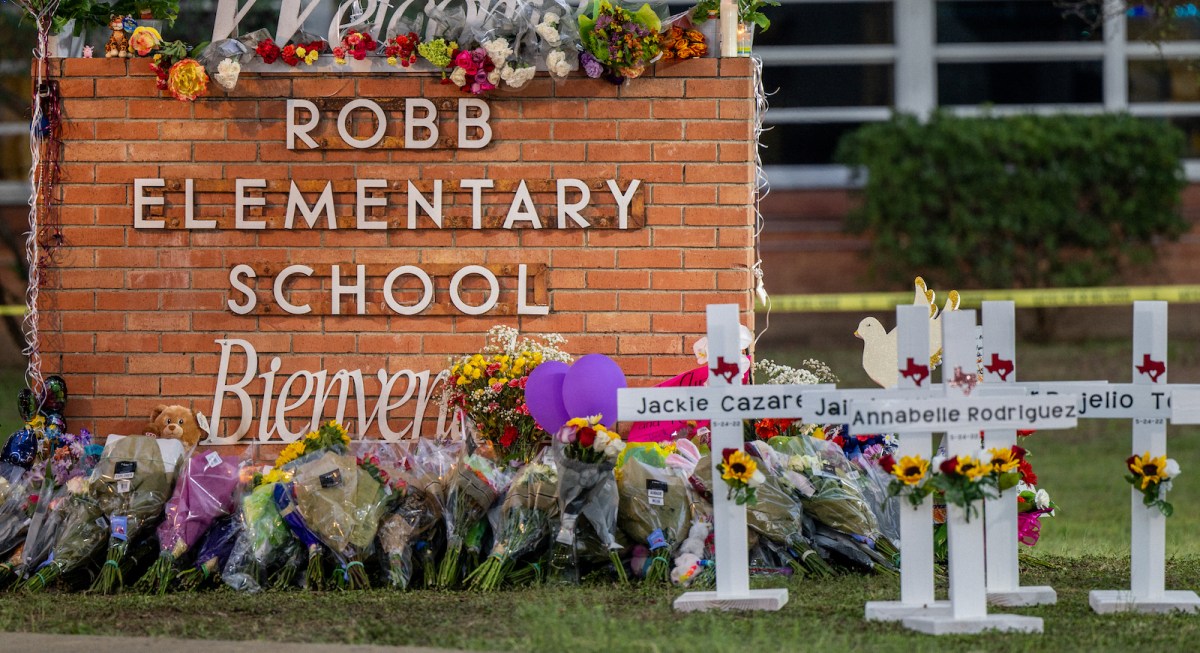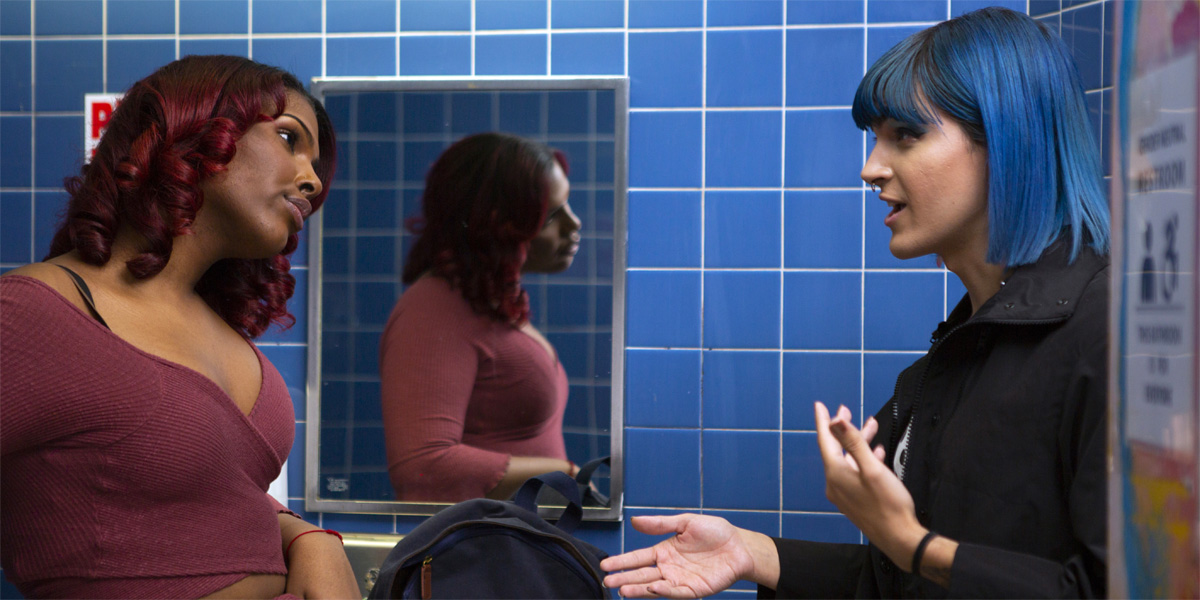LGBT people at anti-gay Christian universities are a perennial hot topic, from 2011’s banned “queer zine” by students at Arkansas’s Harding University, to students attempting to create LGBT student organizations at places like Baylor. One of the most infamous of these “hardcore” anti-gay Christian universities is Liberty University, the Lynchburg, VA school founded by Jerry Falwell in 1971. Yes, that Jerry Falwell, who said gays and feminists were to blame for 9-11. Though he died in 2007, Falwell’s spirit has lived on at the school he created, courting controversy for reasons ranging from its promotion of young Earth creationism to its shut-down of a Democratic student club due to believing the Democratic Party is anti-Christian. As such, Liberty has become the face of the most extremely conservative campuses in the nation.
All that taken together makes Liberty seem like a pretty scary place if you’re not a strict fundamentalist Christian of Falwell’s particular stripe – and especially terrifying if you’re gay. But the idea that these places might not be as bad as liberals think led one writer and Brown University student, Kevin Roose, to spend a semester at Liberty and pen a book about his experiences, The Unlikely Disciple: A Sinner’s Semester at America’s Holiest University. Roose had been raised in a mostly secular household and knew little to nothing about evangelical culture, though he tried to brush up on it so he would fit in at Liberty. He found the students a lot more open-minded than he expected, though it was still quite a culture shock (such as friends coming home engaged after only one date). Yet, he admitted that part of his enjoyment of his time at Liberty was likely due to the fact that he was straight, white and male, and if any one of those variables had been taken away, it probably would have been a vastly different experience.
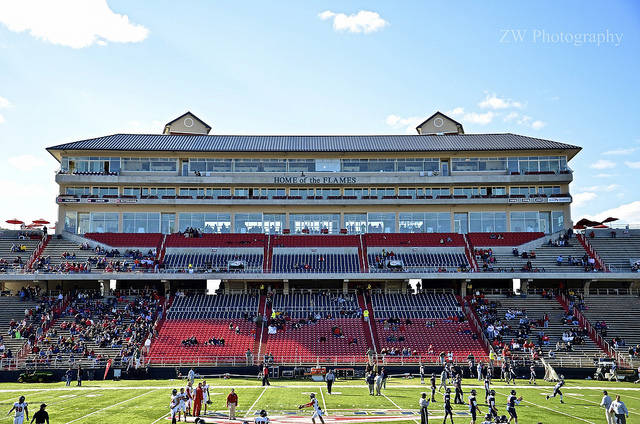
So what would that experience have been like? A recent essay in The Atlantic, by Brandon Ambrosino, a gay graduate of Liberty, gives a rather eye-opening account about it was like to come out in a seemingly unaccepting environment like that which one would expect at Liberty – which is so conservative stuff as minor as a massage between members of the opposite sex, watching an R-rated movie, or drinking alcohol (even for faculty) result in fines. So it must have been awful to be gay, right? After all, having sex with someone of the same gender is one of the university’s biggest demerits. Well, according to Ambrosino, that’s not necessarily true.
Unlike Roose – and presumably like most LGBT students who decide to go to places like Liberty – Ambrosino does come from a fundamentalist Christian background. He explains his decision to attend Liberty here:
No one in my family is a college graduate, so when my girlfriend announced she was going to Liberty, it was just understood that I’d go there, too. My parents were extremely religious, so they liked that Liberty was a Christian school. My dad was actually a pastor. We went to one of those obnoxious churches where people pray in tongues and parade around the sanctuary carrying banners that said “Maranatha.” Because this church marched to the beat of its own drum-driven worship music, we thought we were liberal Christians. The irony, though, was that the congregation was incredibly legalistic and nitpicky. If you smoked, you were going to hell. If you drank alcohol, you were going to hell. If you listened to secular music… well you weren’t necessarily going to hell, but you were backslidden. You can imagine, then, that even if I felt same-sex desires, I was scared to act on them, let alone think about them. And anyway, I wasn’t free to think about my sexuality because I was dating the girl God sent me to marry. Of course, that all changed when we got to Liberty and broke up. I was on my own, away from my parents, away from my church, and surrounded by charming Southern gentlemen… But I wasn’t about to make a move on any of them. After all, this was Liberty.
By the time he did realize the truth – after a secret relationship with another male student at Liberty – he considered dropping out of the school, and actually did withdraw from classes for a while. Yet, Ambrosino eventually came back because of the surprisingly understanding reception he got from his professors, even from the most unlikely ones. He describes an encounter with a religion professor who
“was in his 60s, and was one of Jerry Falwell’s close friends. He was a biblical fundamentalist, and a systematic theologian. I was sure he and I had very different ideas about religion. I was also sure he knew a thousand more anti-gay Scriptures than I did, and that he would effortlessly recite them to me in Greek, Hebrew, Aramaic, Latin, and Egyptian Hieroglyphics.” But when Ambrosino actually came to his house, after they had tea, explored the professor’s house and discussed theology, all he had to say was “I got your e-mail, Brandon. I just wanted to say that you’re my friend and I love you.”
Overall, Ambrosino’s account repeatedly discusses cases where his conservative and seemingly anti-gay professors, deans and fellow students actually gave him a chance and showed compassion and understanding for Ambrosino’s issues, including his coming to terms with his sexuality. His counseling, far from a harmful “reparative therapy” session, was one of his favorite experiences, and was all about making Ambrosino comfortable with himself – just like “secular” therapy.
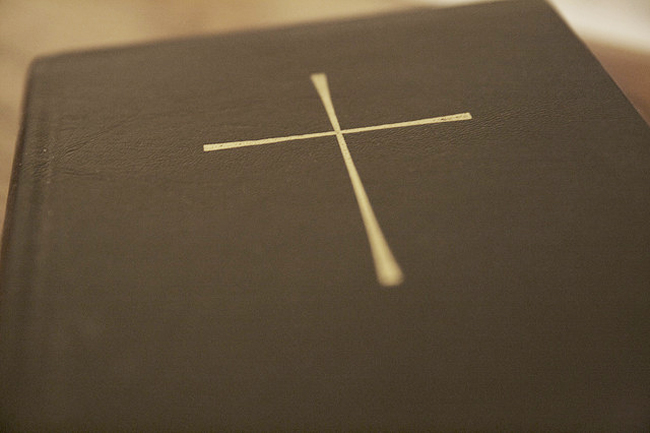
It is encouraging to find out that places like Liberty are perhaps not as bad for their LGBT students as they may initially seem, although Ambrosino’s account is just one on which to judge that (and it’s worthwhile to think about how Brandon’s experience may have been different if he were a queer woman, or of color, or if he were not cisgender). Even though many might look at a place like Liberty and think it’s a queer student’s fault for choosing such an anti-gay environment, circumstances are rarely that simple. For many fundamentalist parents, a fundamentalist university is often the only way they’ll let their kids get a college education. Many students might come in thinking they could honestly “pray away the gay” and it’s only when they’re juniors or seniors – and thus, likely too much of a hassle to transfer rather than just finish their degree – that they could realize that that’s not the case. Students may not themselves be aware of or willing to acknowledge their own sexual orientation when they enroll. Or, there may be other aspects of the school that they enjoy. While it’s easy for secular LGBTs to be disdainful of or confused by that particular struggle, religious LGBT people should not, ideally, have to choose between their religion and their sexuality.
Ambrosino talks about how he personally was able to see that Jesus really would love him because he was embraced by so many of the people at Liberty whom he thought would condemn him. He relates his experience to the story in the Gospel of John where Jesus tells men who want to stone a woman for adultery that “he that is without sin among you, let him first cast a stone at her.”
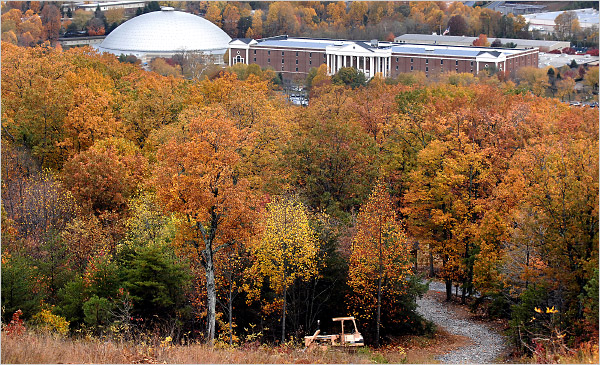
It’s when he ties his experiences to the larger issue of tension between secular LGBTs and anti-LGBT Christians that some of his piece loses his punch. Although it’s fantastic that Ambrosino’s experience coming out at Liberty was ultimately a positive one, his personal interactions with his professors don’t mean that the anti-gay work done by the university and its founder no longer matter. It may be that his professors are understanding people in spite of their fundamentalism, but it rings a bit hollow when he tries to extend the metaphor to Jerry Falwell himself.
When I think of Jerry Falwell, I don’t think about him the way Bill Maher does. I think about the man who would wear a huge Blue Afro wig to our school games, or the man who slid down a waterslide in his suit, or the man who would allow himself to be mocked during our coffeehouse shows. I think about the man who reminded us every time he addressed our student body that God loved us, that he loved us, and that he was always available if ever we needed him. I never told Dr. Falwell that I was gay; but I wouldn’t have been afraid of his response…And if there were some that would’ve wanted to stone me, I can imagine Jerry Falwell, with his fat smile, telling all of my accusers to go home and pray because they were wicked people.
As one commenter says, ” This is very naive. Anyone will have a human side, that’s not saying much.” While he may have been understanding to individuals – Ambrosino doesn’t give any concrete examples, just that it’s his impression that Falwell would act that way – the fact that Falwell spent much of his career stirring up hatred for gays, supporting anti-gay theology and policies, makes it hard to see him as “not that bad.” Being a nice person to someone’s face shouldn’t make up for support for systematic inequality.
Yet, the very fact that so many people at places like Liberty try to be understanding of the individual LGBT people in their lives show that these places aren’t quite as awful as many might imagine. And maybe, if even at a place as stalwartly conservative as Liberty University, there are people who try to make gay people feel like they’re not alone, things are truly changing in American culture as a whole.



